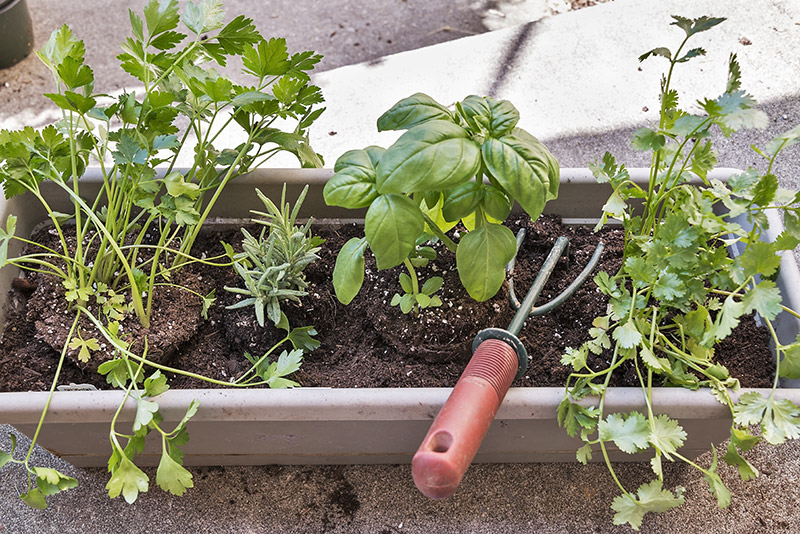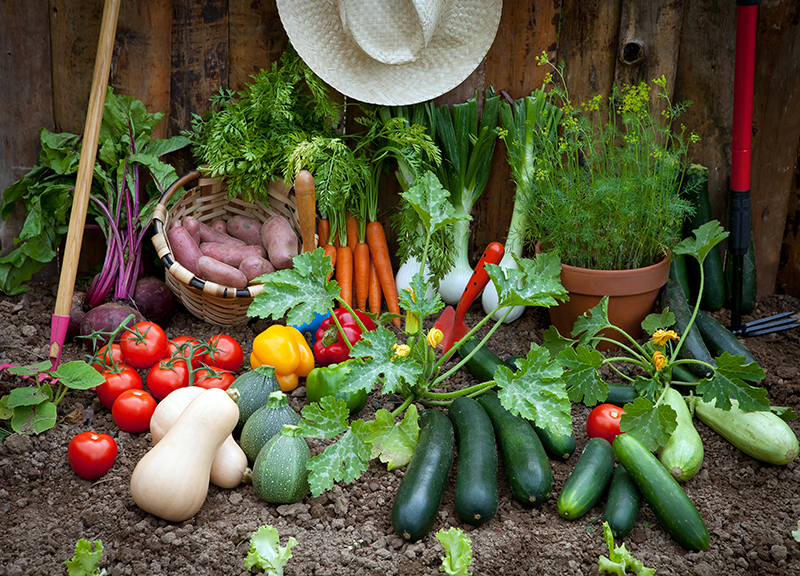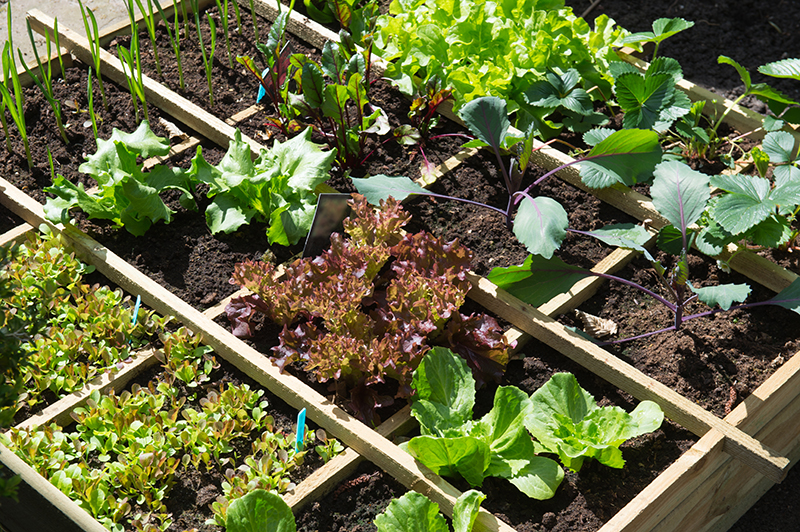Have you been thinking of growing a garden this year? Are you debating whether you should plant veggies, flowers, herbs, or all three? We have some timely tips for your gardening pleasure, no matter which type of garden you decide to grow this year. When you see how well vegetables, herbs, and flowers can work together, you just might decide to go all out!
Although March is the perfect time to get your tomato plants and peppers started indoors before transferring them to your vegetable garden, don’t worry if you haven’t yet found the time to prepare your favorite veggies for planting. You can pick up seedlings at your local home goods store, big box store, nursery, or greenhouse and still enjoy seasonal vegetables this summer.
Let’s start with some of the easiest things to grow in a vegetable garden. Whether you’re new to gardening or a seasoned pro, the following vegetables will flourish in containers or planted in your backyard garden with just a little water, fresh air, and sunlight. The top 10 list includes:
- Basil
- Bell Peppers
- Carrots
- Cucumbers
- Green Beans
- Lettuce
- Radishes
- Spinach
- Summer Squash
- Tomatoes
Whether your garden is just a few containers or takes up a good portion of your backyard, companion planting is a great way to naturally keep bugs and pests to a minimum without the use of harmful chemicals and pesticides. The concept of companion planting is to grow certain plants with properties that benefit each other in close proximity to one another. Fans of organic gardening have proven that companion planting is a very effective method of natural pest control. Planting onions around the perimeter of your vegetable garden beds can help repel moles and other burrowing varmints that can attack your garden from below, as well as turning away some harmful insects.

If you are considering planting both a vegetable garden and an herb garden, companion planting is a wonderful way to use the power of your herbs (specifically, their scent) to repel insects that can wreak havoc on your veggies, which is why basil is at the top of our list of things to plant in your vegetable garden. This aromatic herb isn’t just for use in preparing Italian dishes; basil’s fragrant leaves help keep aphids, flies, mosquitoes, spider mites, tomato hornworms and asparagus beetles at bay, allowing your tomato plants and asparagus to grow to beautiful, ripe maturity.
Other herbs that help repel insects in your vegetable garden include:
- Coriander – repels aphids
- Fennel – repels hornworms
- Horseradish – fights Colorado potato beetle
- Oregano – plant near broccoli to repel white cabbage moths
- Parsley – deters carrot flies and beetles
- Rosemary – fights off carrot flies and cabbage moths
- Rue – repels Japanese beetles
- Sage – repels ticks, cabbage moths, and carrot flies
- Summer Savory – helps beans grow by scaring off the bean beetle
- Thyme – fights off flea beetles, cabbage maggots, cabbage moths
Flowers can also be used in companion planting to help keep insects away from vegetables. Chrysanthemums, Dahlias, Four O’clock flowers, Lavender, Marigolds, Nasturtiums, Pennyroyal, Petunias, Zinnias, and the spectacular Sunflower can all add beauty and function to your summer garden. In fact, companion planting can allow your garden to almost take care of itself. Yes, you’ll still have to water, weed, and tend to your garden, but the right flowers and herbs planted strategically throughout your vegetable garden will either invite beneficial bugs such as ladybugs and praying mantises that prey on pesky pests which can cause serious damage, or repel harmful insects, keeping them at bay and protecting your produce. Aromatic herbs can also help turn away some four-footed nibblers such as rabbits and deer who would happily take advantage of all your hard work in the garden when seeking their afternoon snacks.







